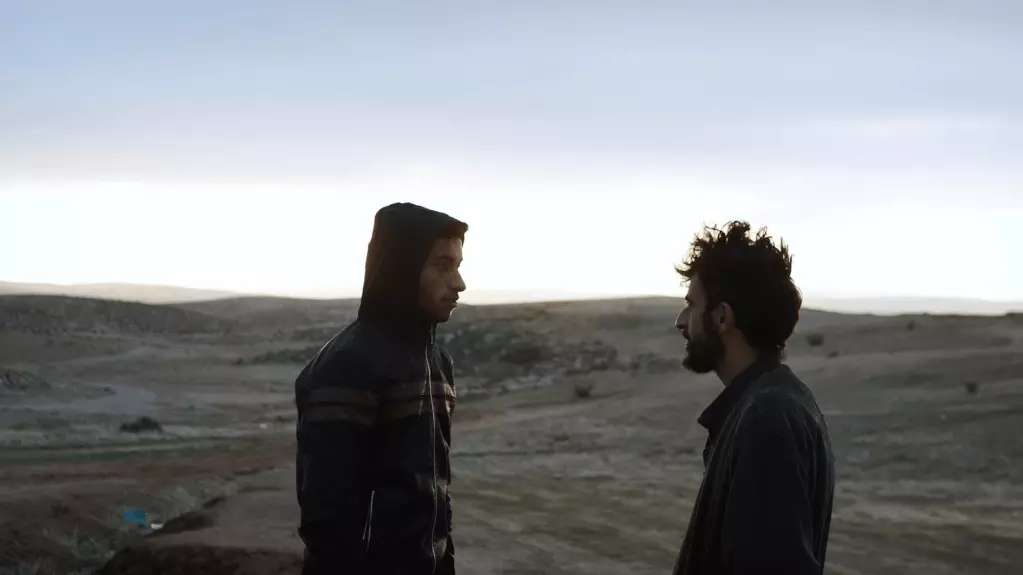The documentary film landscape is rich with stories that provoke thought and inspire action, and “No Other Land,” which recently premiered at Film Forum in New York, is a prime example of this trend. Nominated for an Academy Award for Best Documentary Feature, it is co-created by a unique collaboration of Palestinian and Israeli filmmakers, including Basel Adra, Hamdan Ballal, Yuval Abraham, and Rachel Szor. Their joint effort not only showcases exceptional storytelling but also emphasizes the importance of representation in documenting conflict.
The film, which debuted at the Berlin International Film Festival where it received the Best Documentary award, highlights the situation of the West Bank community of Masafer Yatta. This region, home to 20 ancient Palestinian villages, finds itself caught in the tension of evictions and conflict rooted in a long history of hostilities. The film captures the incremental displacement of families and their relentless fight against government-sanctioned mass eviction, potent themes that resonate with audiences globally.
Over a span of five years, Adra has meticulously documented the demolition of homes, schools, and essential resources like water wells, all of which were justified by the Israeli Defense Forces turning the area into a training zone. As the camera rolls, the viewer witnesses not just loss, but also resilience; the displaced residents, led by passionate activists, respond with protests and appeals to a larger audience, highlighting the power of grassroots movements.
Abraham’s perspective as an Israeli journalist introduces a nuanced layer to the narrative. His ability to move freely juxtaposes the restrictions faced by Adra, creating a compelling partnership that encapsulates both oppression and hope. Their friendship illustrates that even amid deep-rooted enmity, empathy and collaboration can emerge, offering a profoundly human perspective on one of the world’s most enduring conflicts.
In a different vein, the film “Love Me” directed by Sam Zuchero and Andy Zuchero presents an innovative narrative structure, blending elements of science fiction and romance. With a stellar cast including Kristen Stewart and Steven Yeun, the film depicts an unlikely love story that transcends time and existence. Taking a creative leap through the lens of two characters—a buoy and a satellite—who forge a connection long after humanity’s extinction, the film poses questions of identity and the human experience.
This cinematic exploration of love in a desolate future touches on contemporary themes regarding technological relationships and the essence of being alive. The utilization of various filmmaking techniques, such as practical animatronics and classic animation, marks a stark departure from traditional storytelling, allowing viewers to engage with the narrative on multiple sensory levels.
On the action front, “Valiant One,” directed by Steve Barnett, presents an entirely different flavor. Centered around a U.S. helicopter crash in North Korea, the film delves into themes of camaraderie, survival, and the harrowing pressure faced by soldiers. The stakes are driven high as a group of reserve soldiers finds themselves entangled in a situation that could ignite a larger conflict. This blend of suspense and character dynamics adds depth to a genre often criticized for superficiality.
Moving towards socially conscious narratives, “Green And Gold” directed by Anders Lindwall tells the story of a Wisconsin dairy farmer played by Craig T. Nelson, who clings stubbornly to his livelihood by placing a risky bet on the Green Bay Packers’ success. This charming narrative combines humor with a critique of societal pressures surrounding finances and community identity, raising questions about the lengths one would go to hold on to a piece of home.
On a different note, “This Woman,” directed by Alan Zhang, takes the audience through a deeply personal journey. It follows Beibei, a woman disillusioned by her unfulfilling marriage during the pandemic, as she seeks solace in multiple affairs. The documentary dives deep into issues of gender roles and societal expectations, providing a unique perspective on the turmoil faced by many women during challenging times. Zhang’s exploration of identity and personal agency is significant, showcasing contemporary issues facing those within the Chinese-speaking community.
These films reflect a growing understanding of the importance of diversity in film, offering a broad spectrum of stories that come from personal experiences and cultural histories. “No Other Land” specifically shines in its portrayal of a conflict that is often oversimplified in mainstream media. By allowing Palestinian and Israeli voices to share their rich narratives, it fosters a deeper understanding of complex issues.
As the cinematic landscape continues to evolve post-pandemic, these films mark a turning point toward more inclusive storytelling. They not only entertain but also educate, encouraging audiences to reflect critically on the world around them. Through varied genres—be it documentary, action, or drama—the power of film to create change and spark discussions remains undeniable.

